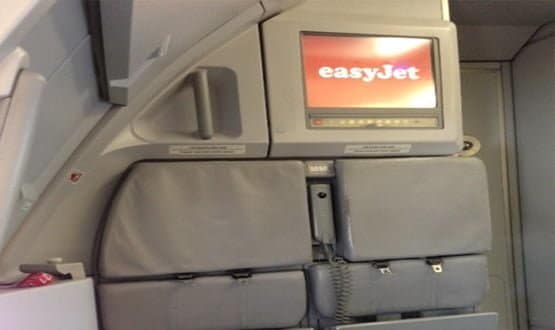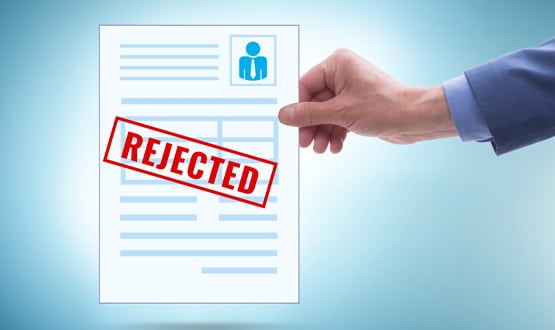Joe’s view of turning data into patient safety
- 25 February 2014

Regular readers will recall that at this time of the year I usually fly easyJet from Newcastle to Geneva for the annual general meeting of the www.comparethesoftware.co.uk project team.
This year is no exception, and I am sitting looking at the sun setting over Verbier in Switzerland as I write.
Regular readers – and Twitter followers – will also know that my principal interests are the quality and safety of mental health services and my interest in IT is a secondary passion, acquired in pursuit of same.
I have admired easyJet’s lean approach to reducing costs before and remain acutely interested in how the company continues to do things cheaper and better than before. Last year, it started to allocate seats, this year we can book a seat.
On the flight from Newcastle, we book seat numbers 1 A and 1B – front row next to the doors – and I get to watch the cabin crew go through their standard operating procedures.
As usual on this flight, overhead locker space is at a premium; but the helpful cabin crew have found a home for our bags. I have my ski jacket over my shoulders with my iPhone in the inside pocket because I don’t like to be separated from it.
It’s bad enough that I am 90 minutes without an internet connection. The idea of being physically separated from the iPhone is unthinkable (the kids have nicknamed it “the precious”, implying that my attachment to it mirrors Gollum’s relationship to the ring in ‘The Lord of the Rings’).
Enter Hazel
Enter cabin manager, Hazel. Hazel is a very smartly dressed lady with an air of calm of authority that puts me in mind of some of the best ward sisters I have worked with. Caring, considerate, professional, but under no circumstances to be messed with, no matter how important you might think you might be.
Hazel wants me to be parted from “the precious” and my jacket because standard operating procedures require that I cannot have my jacket draped around my shoulders, mafia style, while strapped in by my seatbelt during takeoff.
“Health and safety gone mad,” I think to myself, as I glower at the unremittingly polite but forceful Hazel.
Reluctantly, I wriggle out of my jacket and Hazel stores it in an overhead locker. Though defeated, I am impressed that Hazel has stuck to her guns in the face of my truculence and I watch with grudging admiration as she choreographs the take-off procedure.
There is a series of seemingly pointless checklists to be worked through and rules rigorously enforced as I watch from my ring-side seat in row 1.
Confronting people, nicely
As part of my day job, I have to review many serious untoward incidents that result in serious injury or death to NHS patients.
A recurrent theme is the failure of NHS staff to follow policy and procedure or their failure to insist on the right thing in the face of senior staff or seemingly authoritative individuals crying “health and safety gone mad.”
Often, as a result of these reviews, we will communicate via all means necessary in the hope that similar failures can be avoided in the future. All too often, however, we see the same mistakes repeated.
Very serious incidents like homicide are subject to independent investigation and reports are published nationally. But too often the recommendations are achingly familiar; and failure to follow procedure or confront laissez faire practice all too common.
I ask myself: “Why can easyJet get people like Hazel to confront people like me about seemingly pointless issues?”
Only way to find out is to ask Hazel. It’s a short flight and Hazel and her crew are furiously serving drinks. But I explain to Hazel my interest in safety and Hazel agrees to sit opposite me during landing so I can discover her secrets.
Hazel’s lessons for the NHS
I explain that I am impressed with her adherence to procedure in the face of opposition from a crusty old consultant like me, who is used to winning most arguments.
She explains that her ability to do this is a mix of things. Importantly, she has been doing the job for 19 years, so she knows that anything that can go wrong will go wrong.
In particular, she knows that if I am first down the slide during an emergency landing and my jacket full of kit lands on the floor it could trip someone; causing a human domino fall that might keep 300 passengers in a burning aircraft.
How does she know this and why does she enforce it so rigorously? She explains that her initial training included three weeks on passenger safety, including teaching on human factors by consultant psychologists.
Every year there is a week’s refresher training in which video of real incidents and video reconstructions of real incidents feature heavily. This brings home to staff the importance of standard operating procedure, with some emotional context.
Data is for computers, stories are for people
The NHS invests a considerable amount of effort in the investigation of serious untoward incidents. But it doesn’t get the message to frontline staff with sufficient emotion to make it stick like this.
The information that the NHS generates is reported through the National Reporting and Learning System established by the now defunct National Patient Safety Agency.
It’s good that this data is collected; but how often do doctors and nurses visit the NRLS website?
We need to turn the data into meaningful human stories. Data is for computers, stories are for people.
The making and sharing of emotive and emotionally affecting video like Martin Bromily’s work has never been easier. But the NHS remains focused on the production of rather dry reports which satisfy the governance procedures without actually affecting frontline practice.
So what could we do to make learning from healthcare disasters better? How about a commitment from every NHS trust to match easyJet’s commitment to training? That’s a three week initial patient safety training scheme, focused on human factors, with an annual week of refresher training.
How about every trust committing to making one film of a serious incident a year? And how about creating a central repository for those quality training films that could help to avoid the same mistakes being repeated across the NHS?
In the spirit of openness and engagement, why not have all this video stored on an NHS Safety YouTube channel available for professionals and patients alike?
“All of this is too costly and too difficult,” I hear you say. But with the annual NHS compensation bill running at £1.2 billion a year and rising, wouldn’t it be cheaper to set up an NHS Safety YouTube channel if it could convert all that data into learning?
Maybe if there is anything left over from the tech fund…


Joe McDonald
Joe McDonald is a practising NHS consultant psychiatrist. Over the past five years he has been an NHS trust medical director and national clinical lead for IT at NHS Connecting for Health – a stint that included 18 months as medical director of the Lorenzo delivery team!
His experiences in the National Programme for IT in the NHS have left him with a passion for usability and "end user knowledge networks.” He is the founding chairman of the National Mental Health Informatics Network. Motto: we don't get fooled again. Follow him on twitter @CompareSoftware




